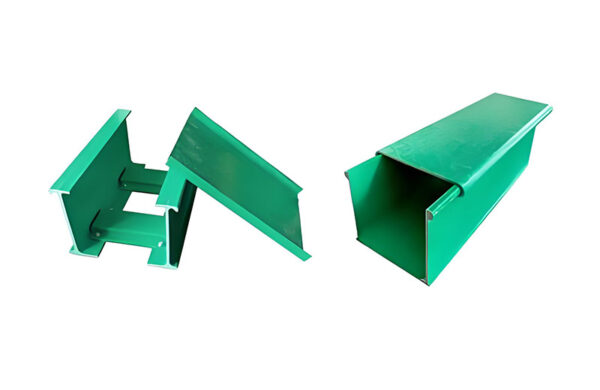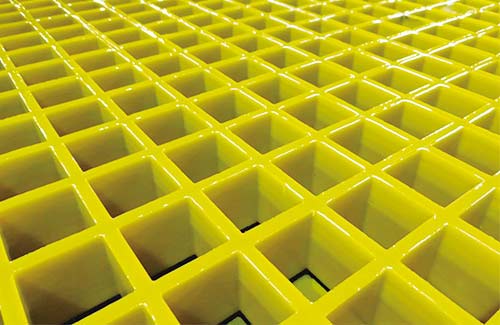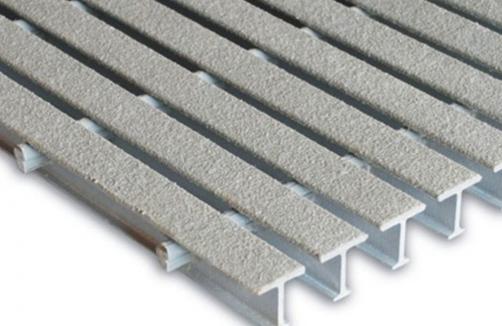FRP Grating in Chemical Processing Plants: Enhancing Safety and Efficiency in Industrial Environments
Chemical processing plants are critical to modern manufacturing, but they also pose significant challenges in terms of safety and efficiency. One of the key challenges is the need for durable, corrosion-resistant flooring solutions that can withstand harsh chemical environments. Fiberglass Reinforced Polymer (FRP) grating has emerged as a superior alternative to traditional materials like steel, concrete, and wood. But what makes FRP grating the ideal choice for these facilities? What are the potential benefits and challenges? And how can chemical processing plants maximize the efficiency and safety of their operations with this innovative material?
The Challenges of Traditional Flooring Solutions

Traditional materials used in chemical processing plants, such as steel and concrete, have inherent limitations. Steel is prone to rust and corrosion when exposed to chemicals, while concrete can crack and deteriorate over time. These issues not only compromise safety but also require frequent maintenance and replacement, leading to increased operational costs. Wood, another common material, is susceptible to rot and chemical damage, making it unsuitable for long-term use in such environments.
Given these challenges, chemical processing plants need a flooring solution that combines durability, chemical resistance, and ease of maintenance. FRP grating offers a compelling solution to these problems.
What Makes FRP Grating the Ideal Choice?
FRP grating is a composite material made from fiberglass reinforced with polymer resins. This combination results in a lightweight, strong, and highly resistant surface that can withstand extreme chemical exposure, high temperatures, and heavy loads. Unlike traditional materials, FRP does not rust, corrode, or degrade when exposed to chemicals, making it an excellent choice for hazardous environments.
Another significant advantage of FRP grating is its slip resistance. The surface can be manufactured with non-slip patterns, reducing the risk of slips and falls—another critical safety concern in chemical plants. Additionally, FRP grating is highly customizable, allowing plants to design floors that meet specific requirements, such as load capacity and tread patterns.
Affrontare i potenziali problemi
Despite its numerous benefits, some facilities may have concerns about the cost of FRP grating compared to traditional materials. However, the long-term savings from reduced maintenance, extended service life, and improved safety can outweigh the initial investment. Furthermore, FRP grating is often more cost-effective than steel or concrete when considering the need for frequent repairs and replacements.
Another concern is the installation process. While FRP grating is relatively easy to install, some facilities may require specialized equipment or expertise. However, working with experienced FRP suppliers can ensure a seamless installation process and optimal performance.
Maximizing Efficiency and Safety
To maximize the benefits of FRP grating, chemical processing plants should consider the following best practices:
- Progettazione corretta: Ensure the grating is designed to handle the specific load requirements and chemical exposure of the facility.
- Ispezioni regolari: Conduct routine inspections to identify any signs of wear or damage.
- Custom Finishes: Choose non-slip finishes to enhance safety in wet or slippery areas.
- Training: Train employees on the proper use and maintenance of FRP grating to prolong its lifespan.
Condividere le intuizioni degli esperti del settore
Industry experts emphasize the transformative impact of FRP grating in chemical processing plants. “FRP grating has revolutionized industrial flooring by offering a durable, lightweight, and chemical-resistant solution,” says John Smith, a leading industrial flooring consultant. “Plants that adopt FRP grating see significant improvements in safety, efficiency, and cost savings.”
Another expert, Jane Doe, adds, “The customization options of FRP grating allow facilities to tailor their flooring to specific needs, further enhancing performance and longevity.”
Conclusione
FRP grating is a game-changer for chemical processing plants, addressing key challenges related to safety, efficiency, and durability. By replacing traditional materials with this innovative solution, plants can reduce maintenance costs, enhance worker safety, and improve overall operational performance. As the industry continues to evolve, FRP grating is poised to play an even greater role in shaping the future of industrial flooring.
For chemical processing plants looking to upgrade their flooring systems, FRP grating offers a smart, sustainable, and cost-effective solution that delivers long-term value.







